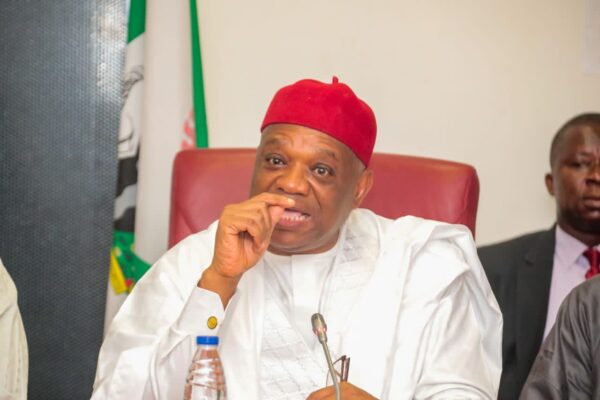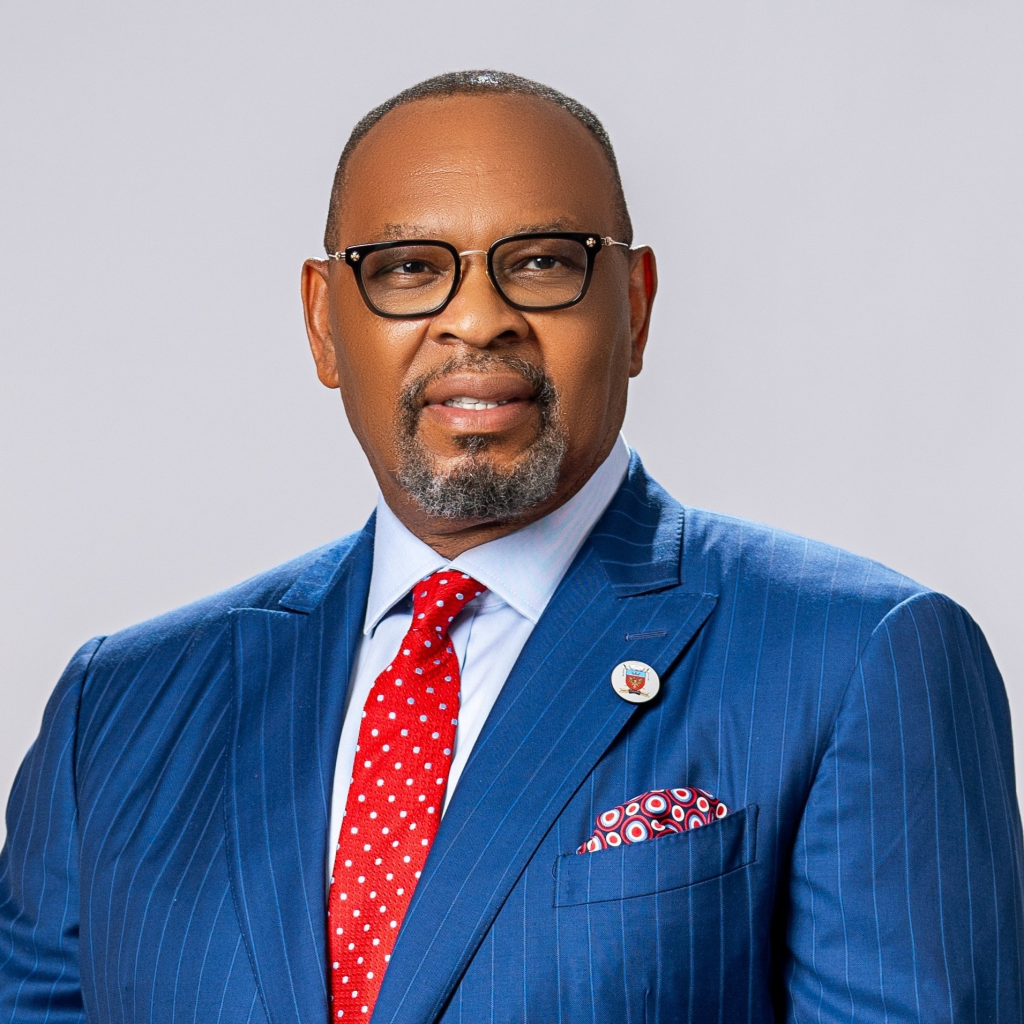* Appointee vows to clean electoral commission
* Pushes for Electoral Offences Commission to end poll malpractices
Sunday Aborisade, Abuja
The Senate on Thursday confirmed the appointment of Professor Joash Amupitan as the new Chairman of the Independent National Electoral Commission (INEC), following an exhaustive screening session that lasted about three hours and featured probing questions from lawmakers across party lines.
Amupitan, a distinguished legal scholar and Senior Advocate of Nigeria (SAN), pledged sweeping institutional reforms to restore public trust in Nigeria’s electoral system, vowing to create an Ethics and Compliance Committee and push for the establishment of a long-overdue Electoral Offences Commission to investigate and prosecute electoral crimes.
During his screening, which was broadcast live, senators pressed the nominee on the recurring lapses in the country’s electoral processes, including allegations of compromise by officials, logistical failures and public mistrust in election results.
Amupitan, in his responses, offered a detailed roadmap that resonated with his central message: “To make elections so credible that even the loser will congratulate the winner.”
INEC Officials Must Be Held Accountable
The new INEC boss told lawmakers that one of his first steps upon assumption of office would be to introduce an internal integrity framework to hold electoral officers accountable for misconduct.
Amupitan said: “I am taking this position on trust, and those who will work with me must also recognize that they are holding the trust of the Nigerian people.
“To maintain integrity, I intend to set up an Ethics and Compliance Committee within INEC to audit reported cases of misconduct.”
He admitted that past elections had been marred by irregularities and corruption, noting that while some offenders in Bayelsa and Adamawa States had been prosecuted, many others escaped justice.
Amupitan pledged that such impunity would no longer be tolerated.
“We will follow through on all reported cases to ensure accountability. Electoral offences must carry consequences,” he declared, drawing applause from the chamber.
Pushes for Electoral Offences Commission
Amupitan called on the National Assembly to fast-track the creation of an Electoral Offences Commission, which he said would provide the legal and institutional muscle to curb malpractice.
He said: “The current system lacks sufficient capacity to investigate and prosecute electoral crimes.
“We need a dedicated body with the mandate and resources to handle this critical task. INEC will work closely with the legislature to achieve that.”
He further hinted at introducing a whistleblower policy within the commission, designed to protect individuals who expose corrupt practices by electoral officers.
“People must be free to report malpractices without fear of victimization,” he noted.
Pledges Improved Technology, Security and Logistics
Addressing questions on logistics and election-day security, the nominee acknowledged the enormous challenges posed by Nigeria’s size and diversity.
He announced plans to strengthen coordination with the Joint Committee on Election Security to ensure protection of materials, personnel and voters.
According to him, “In high-risk areas, we will adopt innovative methods, including the possible use of drones and other secure technologies, to ensure election materials reach their destinations safely.
“No voter will be left behind. That will be our guiding principle.”
Amupitan also promised to overhaul INEC’s technological infrastructure, especially the electronic transmission and collation systems that had generated controversy in previous elections.
“We will assess the existing systems, review the technology and adopt what best enhances transparency and credibility,” he told the lawmakers.
Promises To Fix Electoral Timelines and Building Confidence
Responding to questions on inconsistencies in the Electoral Act, Amupitan agreed that some provisions were contradictory, causing confusion and litigation.
He pledged to work with relevant authorities to harmonize timelines and clarify grey areas.
“A clear and consistent electoral timetable will help build public confidence and reduce post-election disputes.
“Our goal is simple. Elections are so credible that even losers will accept the results in good faith,” he stated.
Calls For Civic Education and Institutional Reforms
On voter education, the new INEC Chairman said the commission would adopt a more aggressive approach to civic enlightenment, in line with its mandate under Section 2 of the Act.
He said: “We will intensify civic and voter education, targeting not just the electorate but also political parties, civil society organizations, and other stakeholders.
“Democracy thrives when citizens understand their rights and responsibilities,” he added.
He also promised to strengthen capacity-building within INEC, ensuring that officials at all levels receive regular training on ethics, technology and electoral best practices.
Stresses Need For Financial Prudence and Transparency
Responding to questions on financial accountability, Amupitan assured the Senate that all INEC expenditures would strictly comply with the Public Procurement Act and the Finance Act.
He said: “INEC funds will be used only for the purposes for which they are appropriated.
“We will explore ways to reduce costs without compromising efficiency.”
He’s Ready for the Job, Senate Commend Amupitan
After the session, Senate President Godswill Akpabio put the nominee’s confirmation to a voice vote.
The chamber echoed with a resounding “Aye!” as the lawmakers unanimously approved his appointment.
Akpabio described Amupitan as “a man of intellect, courage, and integrity” who brings academic depth and moral strength to the nation’s electoral body.
With the confirmation now sealed, Amupitan will assume leadership of INEC at a defining moment in Nigeria’s democratic journey. One in which citizens demand not just elections, but credible ones that reflect their collective will.
As he put it during the session, “Our approach will be guided by integrity, accountability, security, efficiency, and education, to ensure that elections in Nigeria truly reflect the will of the people.”
The President of the Senate, Akpabio, after the confirmation, challenged his colleagues in the National Assembly to work towards ensuring the true financial and political independence of the local government in Nigeria.
Amupitan is a seasoned legal scholar and constitutional law expert with over three decades of academic and professional experience.
A former Dean of the Faculty of Law at the University of Jos, he has contributed significantly to legal education and democratic governance through research, advocacy and public service.
Widely respected for his integrity and intellectual rigor, Amupitan has served as legal consultant to several national and international institutions, including the National Assembly, the Nigerian Law Reform Commission, and the Commonwealth Secretariat.
His writings on constitutionalism, electoral law and governance have been widely cited in academic and policy circles.
His appointment comes at a time when the credibility of Nigeria’s electoral process faces intense scrutiny, with growing calls for reform, transparency and accountability.
Many observers see his confirmation as a chance for INEC to rebuild public confidence and reposition itself as a truly independent and impartial umpire in Nigeria’s democracy.


